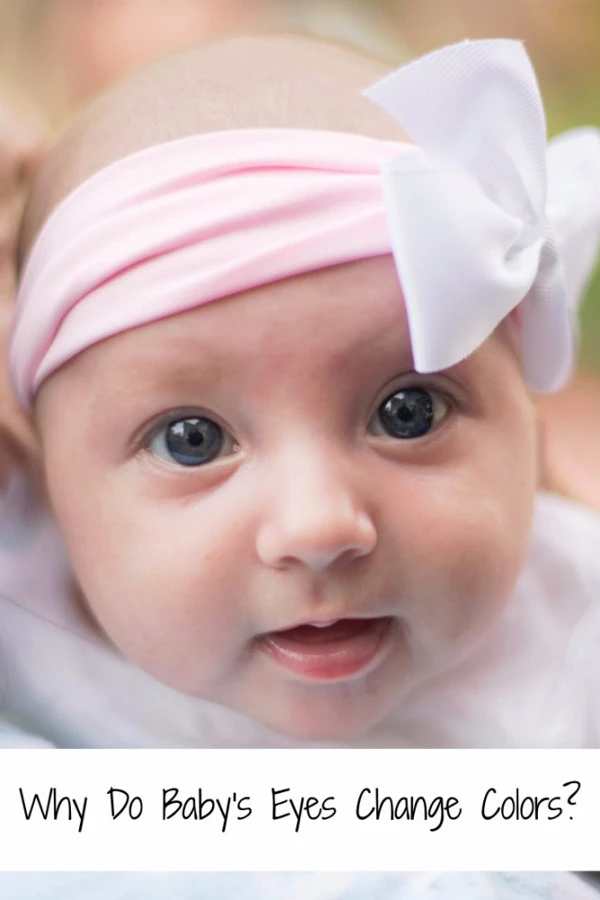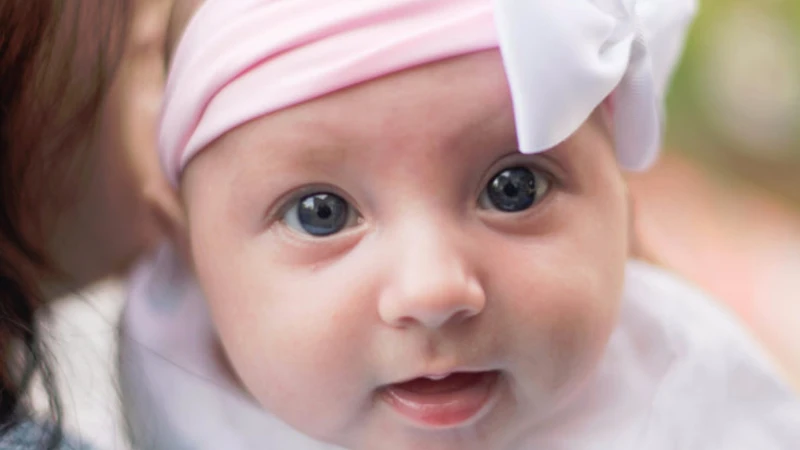Disclosure: This post may contain affiliate links, meaning we get a commission if you decide to make a purchase through our links, at no cost to you. Please read our disclosure for more info.
If your baby is born with blue eyes, that doesn’t mean it will always stay that way. The eye color of your child is all down to genetics. While there are those who subscribe to the theory that brown-eyed parents will most definitely have offspring with the same eye color, the truth is much more complex than that.
A child inherits genes from both parents – that is a fact. But just taking those two gene pools into account isn’t looking at the whole picture. Put simply, genetics involves the entire family tree. So if either one of the brown-eyed parents have a blue-eyed parent, then there’s a good chance their baby will end up having blue eyes.
In This Post:
Why Does a Baby’s Eye Color Change?
The reason for the change in eye color in babies is a pigment called melanin, the same pigment responsible for the color of skin and hair. What determines eye color is the amount of melanin found in the iris (the colored part of the eye). And the amount of melanin a person has in their body is determined by genetics.
Your baby’s eye color was already determined when they inherited genes from you and your partner; it just takes a while for it to become permanent.
Since there isn’t much melanin production in the womb, a child may be born with blue eyes which can gradually get darker as they get older due to light stimulating melanin production.
It’s also important to note that eye color change is common among Caucasian babies as they don’t have that much melanin in their eyes. Babies from other ethnicities are usually born with brown eyes and that remains the case into adulthood.
So if you’re currently expecting a child and are excited about what they will look like, don’t take eye color charts and predictors too seriously. They might be able to give you an outlook, but they can’t predict the eye color of your baby – not even your doctor can. Genetics determines that and you’re going to have to wait and see for thefinal shade to reveal itself. Unless of course your child was born with brown eyes – they are stuck with that their entire lives.

When Does a Baby’s Eye Color Start to Change?
The changing of eye color doesn’t happen overnight – it’s a gradual process. You’ll start to notice visible changes when your baby is around six- to nine-months old.
Although most babies get their permanent eye color when they are 12 months old, some do when they are six years old. However, this is a rare phenomenon.
When Should You Be Concerned?
A change in eye color shouldn’t affect the vision of your child or be connected to any eye issues. However, there are instances that are cause for concern: when one eye changes color and when there is cloudiness.
When any of those happen to your baby, get in touch with a pediatrician straight away to determine the problem.
So there you have it: your baby’s eye color is subject to change, but not if it is brown in the first place – there is no going back if that is the case. Babies born with blue eyes can have brown or green eyes when they get older – parents will just have to wait and see which is which.
However, some use this method to determine permanent eye color: view a child’s eyes from the side so it isn’t affected by light and if you spot the presence of gold, then eye color might change to green or brown, otherwise it will remain blue.



